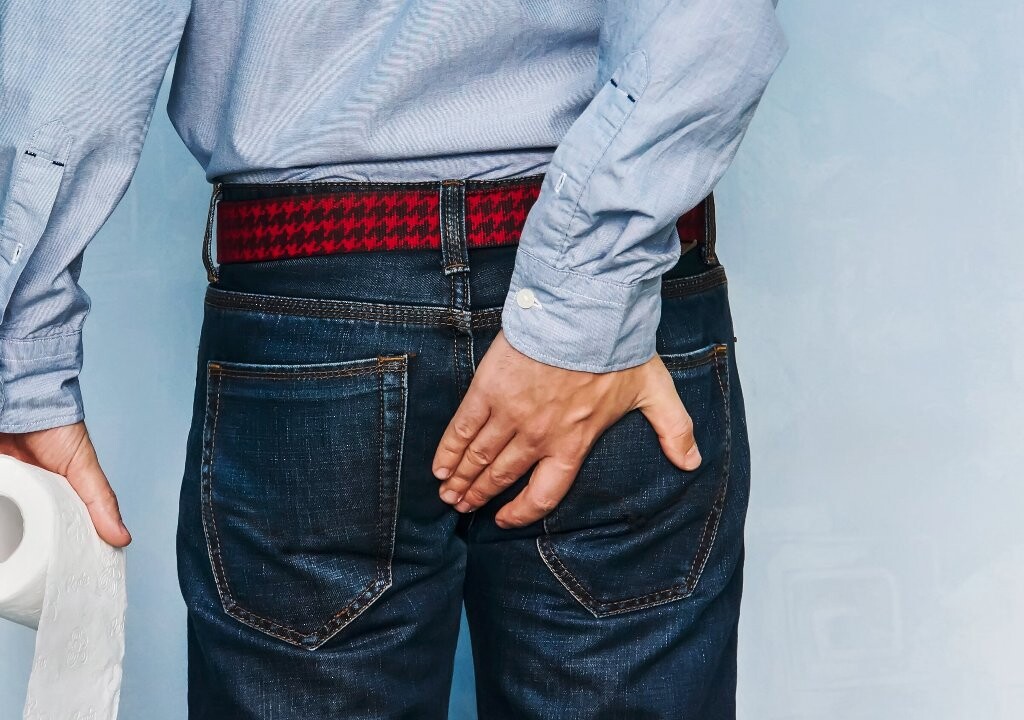Hemorrhoids are uncomfortable and annoying. Hemorrhoids are more common than we think, but we rarely talk about them out of embarrassment or shame. It is said that three out of four people suffer from them at some point in their lives.
Hemorrhoids according to Biodescodification – Emotional Conflicts
Do you have them? Do you experience anal pain? Read on to learn more about the Biodescodification approach to hemorrhoids and how it can help you if you frequently experience hemorrhoids and are unsure how to treat them.
How are hemorrhoids generated?
The condition known as hemorrhoids is characterized by enlargement and inflammation of the veins inside the anal canal and lower rectum, which is caused by pressure from the protective pads of the anal area.
They resemble varicose veins and manifest as twisted (tortuous) vessels that join venous insufficiency, which prevents support of the anal mucosa. Hemorrhoids can develop internally or externally and can be seen from the outside (external hemorrhoids).
This group of veins, known as the hemorrhoidal venous plexus, drains the blood that accumulates there and sends it to the rest of the body while supporting and protecting the mucosa during defecation.
When one or more of these veins become inflamed and inadequate, this causes a problem. When someone says they have hemorrhoids, we usually think of hemorrhoidal disease, also known as piles.
What does it mean to have hemorrhoids?
Anyone who has hemorrhoids or has had them knows how many activities are restricted.
You are constantly reminded of their presence, whether it is when moving, sitting, standing, or taking another posture. Not to mention how important it is when you need to go to the bathroom.
This article may be of interest to you if you have tried all the creams on the market, have already visited the doctor several times and the episodes continue to occur despite your efforts to stop them.
Symptoms of hemorrhoids
The symptoms of hemorrhoids are very characteristic. However, let’s put modesty aside for the moment and talk about the anus, piles and stool.
Hemorrhoids are most likely present if you experience wetness around the rectum, bleeding when urinating (traces of blood are found on the paper), itching, pain in the area (especially on contact with any surface), or any combination of these symptoms.
Depending on whether they are internal, external, or thrombosed hemorrhoids, the symptoms of hemorrhoids change.
- Internal: they are located inside the rectum and show as a sign of small asymptomatic bloody stools.
- External: they are located under the skin covering the anus. Inflammation occurs around the anus causing pain, itching, discomfort and bleeding.
A hemorrhage on the outside that has thrombosed. A large and excruciatingly painful lump develops in the anus.
The origins of hemorrhoids
If we talk about the causes of hemorrhoids, we know that constipation worsens hemorrhoids.
The inability to urinate for days leads to dry stools which, when forced through the small fissures of the anal canal, irritate the mucosa and cause the appearance of uncomfortable hemorrhoids.
They can also develop during childbirth (when vaginal) when a lot of pressure is exerted on the tissues and the anal canal and during pregnancy, especially in the third trimester, due to compression of the organs.
Consequences of hemorrhoids
Regular constipation can cause inflammation of the hemorrhoidal venous plexus, which could lead to the development of hemorrhoidal disease.
Most people do experience sporadic episodes of piles, but if they become regular and the bleeding continues, you may develop some degree of anemia.
It can even affect self-esteem and self-confidence if we take all of the above into account, plus it is a delicate issue to deal with.
When hemorrhoids have already developed, you can reduce the pressure on the veins of the anus by taking chamomile baths (soaking the area), applying aloe vera to the perianal area, using corticosteroid creams or ointments (following medical indications) and avoiding prolonged sitting.
To prevent hemorrhoids, beyond following medical advice, it is essential to examine the underlying emotional conflict and resolve it to avoid future traumas… or piles…
Transform your emotional and spiritual life with a personalized tool
Discover the power of Biodecoding combined with Kabbalah. Through your Personal Kabbalistic Tree, designed based on your name and date of birth, you’ll receive a practical guide to work on your emotions and achieve holistic well-being.





